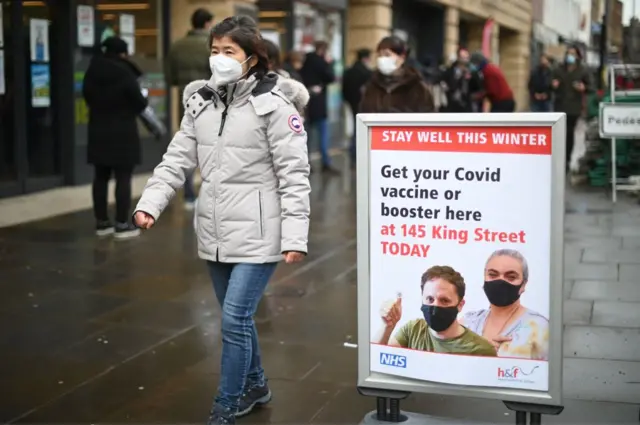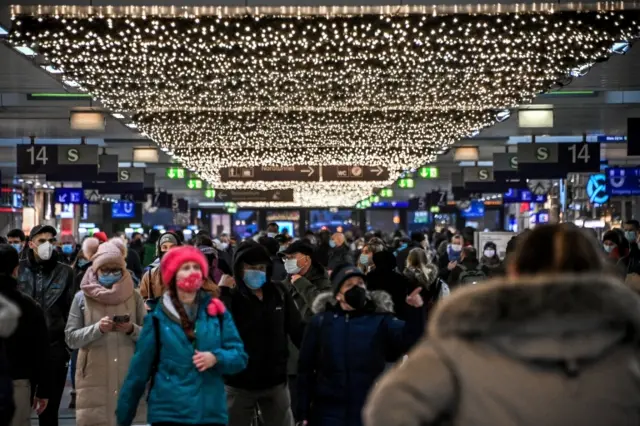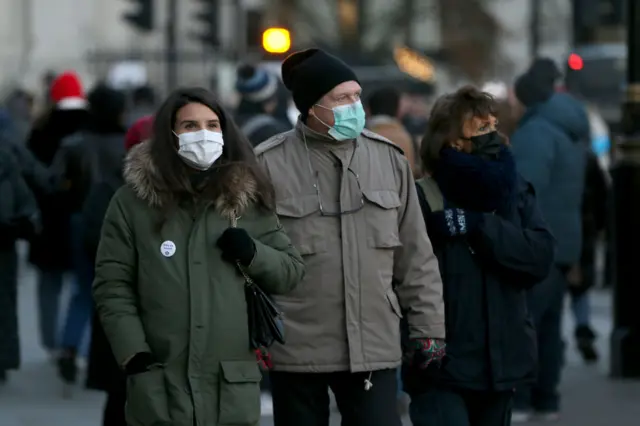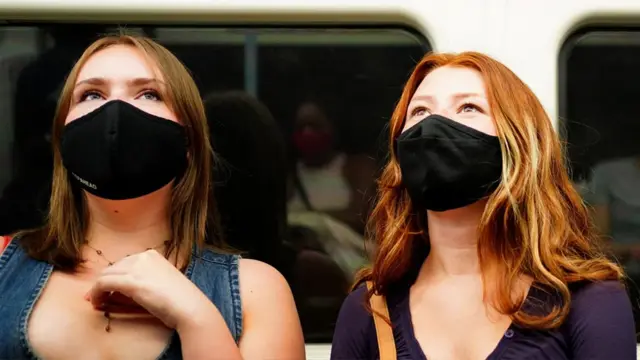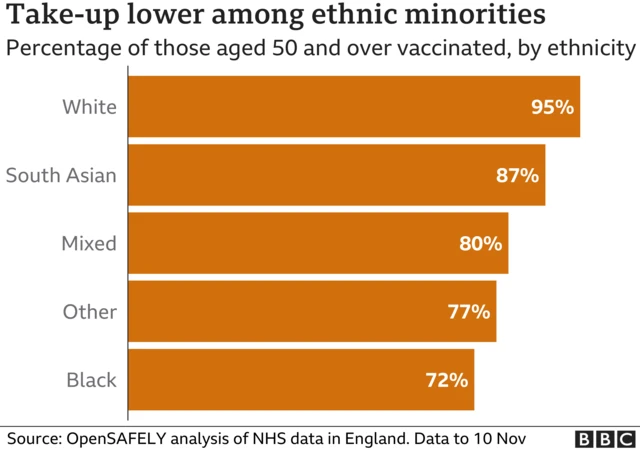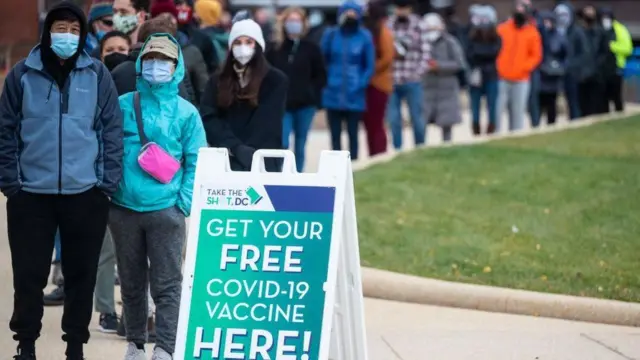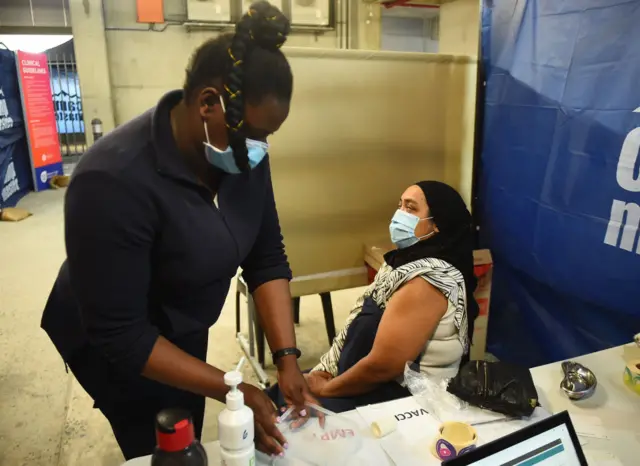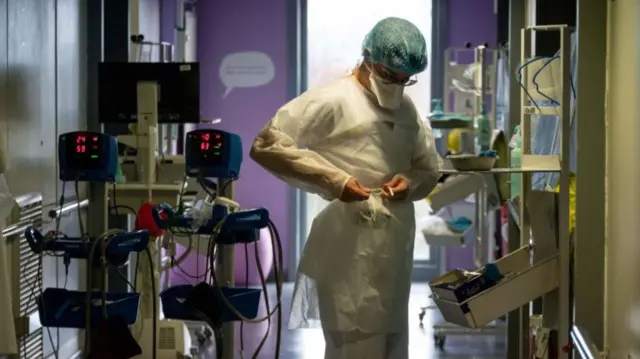People should not panic over Omicron - WHOpublished at 13:22 GMT 3 December 2021
 Image source, Getty Images
Image source, Getty ImagesThe Omicron variant is very transmissible but people should not panic, the World Health Organization’s chief scientist Soumya Swaminathan says.
"How worried should we be? We need to be prepared and cautious, not panic, because we're in a different situation to a year ago," Swaminathan tells the Reuters Next conference.
She says the world is much better prepared, given the development of vaccines since the start of the pandemic.
"We need to wait, let’s hope it's milder... but it's too early to conclude about the variant as a whole," she tells the virtual conference, run by Reuters news agency.
She adds it is “possible” Omicron could become the dominant variant, out-competing the Delta variant, which accounts for 99% of infections around the world, “but it’s not possible to predict”.
